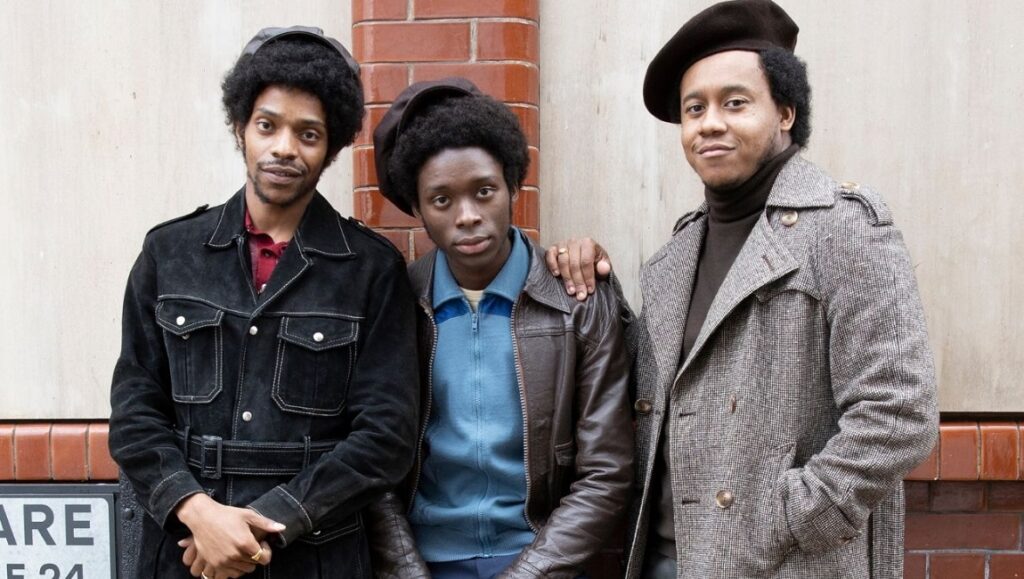Alex Wheatle is the slightest of the Small Axe films in many ways, but it’s also perhaps the most instructive as to the project’s overarching concerns.
Having left festival season behind and with the majority now available to the public, the scope and collective structure of Steve McQueen’s Small Axe films have come into focus. Alex Wheatle, being released on Prime Video as the fourth and penultimate entry in the series, appears slight in comparison to the films sequenced around it, yet in many ways it represents the mission of the entire project.
McQueen’s approach to telling the title character’s story differs here from the sprawling, linear narratives of Mangrove and Red, White and Blue, instead condensing this decades-long story into an efficient 66-minute biography. This film is also the only one to employ a framing device, introducing Wheatle at the start of a prison sentence for his participation in the Brixton Riots, before heading backwards into remembrances of his childhood and adolescence. Alex Wheatle never alludes to its protagonist’s future as a novelist, but instead details the events in his life that would eventually inspire his writings. The Brixton Riots and Wheatle’s involvement figure into this chapter heavily, though McQueen’s interest in this pivotal moment in the U.K.’s civil rights movement skews away from physical violence — initially recreating the instigating clash between cop and citizen in claustrophobic, hand-held close-ups, before transitioning to a montage of still, archival black and white images, detailing the subsequent violence at a respectful remove. In keeping with this formal choice, Alex Wheatle is interested in the riot as a form of protest, and, in the case of Wheatle himself, a demand for recognition from a society that had denied him an identity since childhood.
Indeed, much of Alex Wheatle’s action is derived from the young Wheatle’s struggle to reckon with the abuse and degradation he faced in a group home as a child, left in the hands of white caretakers who refused him the chance to explore his Jamaican heritage and black identity. It is Wheatle’s drive to reclaim his history that drives the episode, and indeed this is perhaps Small Axe’s intent in the broadest sense: to canonize the history of Britain’s West Indian community in cinema, as it hasn’t previously been. Wheatle’s project as a current-day writer is the same as McQueen’s here.
This is, of course, a lot to take on in just over an hour, and inevitably timelines get a little hazy, certain tangents are given more attention than others, etc. Alex Wheatle is likely to be received as the slightest Small Axe entry, which is about right, but as a piece with four other films (with the fifth and final one, Education, elaborating on a lot of this from a somewhat different angle), it makes sense as an interlinking work, bringing together themes and history from the surrounding chapters, reasserting the general vision.
You can stream Steve McQueen’s Alex Wheatle on Amazon beginning December 11.


Comments are closed.